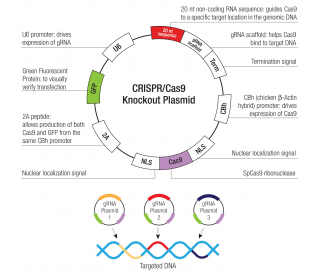Purity
>97%, by SDS-PAGE visualized with Silver Staining and quantitative densitometry by Coomassie® Blue Staining.
Endotoxin Level
<0.10 EU per 1 μg of the protein by the LAL method.
Activity
Measured by its ability to enhance LPS-stimulated IL-8 secretion by THP‑1 human acute monocytic leukemia cells. The ED 50 for this effect is 0.25‑2.5 ng/mL.
Source
Mouse myeloma cell line, NS0-derived Ala26-Val481
Accession #
N-terminal Sequence
AnalysisAla26
Predicted Molecular Mass
51 kDa
SDS-PAGE
55-60 kDa, reducing conditions
Carrier Free
What does CF mean?
CF stands for Carrier Free (CF). We typically add Bovine Serum Albumin (BSA) as a carrier protein to our recombinant proteins. Adding a carrier protein enhances protein stability, increases shelf-life, and allows the recombinant protein to be stored at a more dilute concentration. The carrier free version does not contain BSA.
What formulation is right for me?
In general, we advise purchasing the recombinant protein with BSA for use in cell or tissue culture, or as an ELISA standard. In contrast, the carrier free protein is recommended for applications, in which the presence of BSA could interfere.
870-LP/CF |
| 870-LP |
Formulation Lyophilized from a 0.2 μm filtered solution in Tris, NaCl and EDTA. | Formulation Lyophilized from a 0.2 μm filtered solution in Tris, NaCl and EDTA with BSA as a carrier protein. | |
Reconstitution Reconstitute at 100 μg/mL in sterile PBS. | Reconstitution Reconstitute at 50 μg/mL in sterile PBS containing at least 0.1% human or bovine serum albumin. | |
Shipping The product is shipped at ambient temperature. Upon receipt, store it immediately at the temperature recommended below. | Shipping The product is shipped at ambient temperature. Upon receipt, store it immediately at the temperature recommended below. | |
Stability & Storage: Use a manual defrost freezer and avoid repeated freeze-thaw cycles.
| Stability & Storage: Use a manual defrost freezer and avoid repeated freeze-thaw cycles.
|
Background: LBP
Lipopolysaccharide-binding protein (LBP), a 58 kDa glycoprotein synthesized in hepatocytes, belongs to a family of lipid-binding proteins which includes bactericidal/permeability increasing protein (BPI), phospholipid ester transfer protein (PLTP), and cholesterol ester transfer protein (CETP). LBP binds to the lipid A portion of lipopolysaccharide (LPS) to facilitate the process of LPS monomerization, catalyze the binding of LPS monomers to CD14, and promote LPS-induced immune response. LBP is present at low concentrations in normal human serum and may increase up to 30-fold during the acute phase response. Studies indicate that LBP also acts catalytically in the transfer of LPS to HDL, thus accelerating LPS detoxification. In addition, LBP and soluble CD14 can also function in phospholipid transport.
References:
Hailman, E. et al. (1994) J. Exp. Med. 179:269.
Jack, R.S. et al. (1997) Nature 389:742.
Schumann, R.R. et al. (2000) Chem. Immunol. 74:42.
Long Name:
Lipopolysaccharide-binding Protein
Entrez Gene IDs:
3929 (Human); 16803 (Mouse)
Alternate Names:
LBP; lipopolysaccharide binding protein; lipopolysaccharide-binding protein; LPS-binding protein; MGC22233










